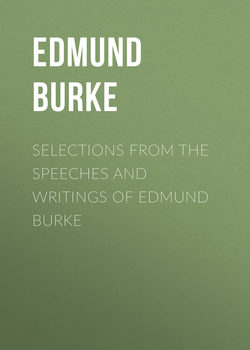Читать книгу Selections from the Speeches and Writings of Edmund Burke - Edmund Burke - Страница 134
SELECTIONS FROM THE SPEECHES AND WRITINGS OF EDMUND BURKE
FRENCH AND ENGLISH REVOLUTION
ОглавлениеHe felt some concern that this strange thing, called a Revolution in France, should be compared with the glorious event commonly called the Revolution in England; and the conduct of the soldiery, on that occasion, compared with the behaviour of some of the troops of France in the present instance. At that period the prince of Orange, a prince of the blood-royal in England, was called in by the flower of the English aristocracy to defend its ancient constitution, and not to level all distinctions. To this prince, so invited, the aristocratic leaders who commanded the troops went over with their several corps, in bodies, to the deliverer of their country. Aristocratic leaders brought up the corps of citizens who newly enlisted in this cause. Military obedience changed its object; but military discipline was not for a moment interrupted in its principle. The troops were ready for war, but indisposed to mutiny. But as the conduct of the English armies was different, so was that of the whole English nation at that time. In truth, the circumstances of our revolution (as it is called) and that of France, are just the reverse of each other in almost every particular, and in the whole spirit of the transaction. With us it was the case of a legal monarch attempting arbitrary power—in France it is the case of an arbitrary monarch, beginning, from whatever cause, to legalize his authority. The one was to be resisted, the other was to be managed and directed; but in neither case was the order of the state to be changed, lest government might be ruined, which ought only to be corrected and legalized. With us we got rid of the man, and preserved the constituent parts of the state. There they get rid of the constituent parts of the state, and keep the man. What we did was in truth and substance, and in a constitutional light, a revolution, not made, but prevented. We took solid securities; we settled doubtful questions; we corrected anomalies in our law. In the stable, fundamental parts of our constitution we made no revolution; no, nor any alteration at all. We did not impair the monarchy. Perhaps it might be shown that we strengthened it very considerably. The nation kept the same ranks, the same orders, the same privileges, the same franchises, the same rules for property, the same subordinations, the same order in the law, in the revenue, and in the magistracy; the same lords, the same commons, the same corporations, the same electors.
